BRANDED CONTENT
Future-proofing S'pore's checkpoints: How he's making trips to JB smoother, quicker and more secure
From shaping policies to leveraging new technology, DAC Joe Tan's mission is to safeguard Singapore's air, land, sea and rail borders
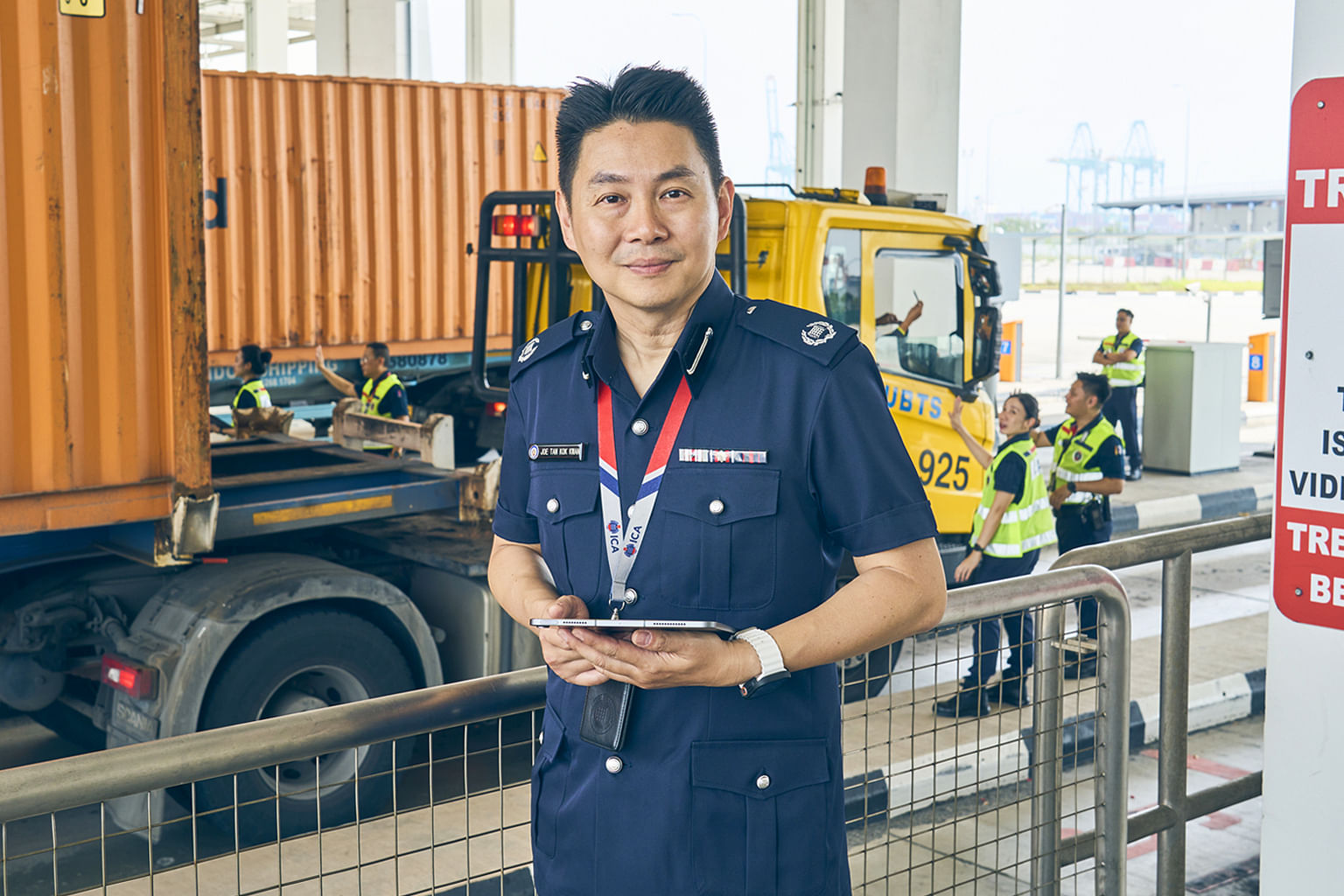
Deputy Assistant Commissioner Joe Tan strives to make cross-border travels more seamless and secure. PHOTO: SPH MEDIA
Follow topic:
Over the span of almost two decades, Deputy Assistant Commissioner (DAC) Joe Tan has taken up various roles in the Immigration and Checkpoints Authority (ICA). However, the key objective has remained the same: to safeguard the borders of Singapore, while ensuring it remains connected to the outside world.
Learn more about what DAC Joe Tan has to do to prepare for some of Singapore's upcoming mega infrastructure checkpoints in this video.
What started out as a career at Woodlands Command has since evolved into a more strategic role, in which he is being challenged to develop and future-proof the country’s new checkpoints across air, land, sea and rail.
“Technology is constantly evolving and the travel landscape is dynamic. By actively exploring new solutions, we can develop checkpoints that cater to the evolving needs of travellers,” says the 45-year-old.
Currently a 1 Deputy Director (Operations), he shares more about what drives him and reveals more about the mega infrastructure checkpoints Singaporeans can expect over the next few years.
Q: What does your job entail?
In my current role, I lead three development branches responsible for the conceptualisation, planning and development of new checkpoints across air, land, sea and rail. I oversee these projects from initial ideation to final implementation.
A typical day at work involves a mix of strategic planning, collaboration and project management.
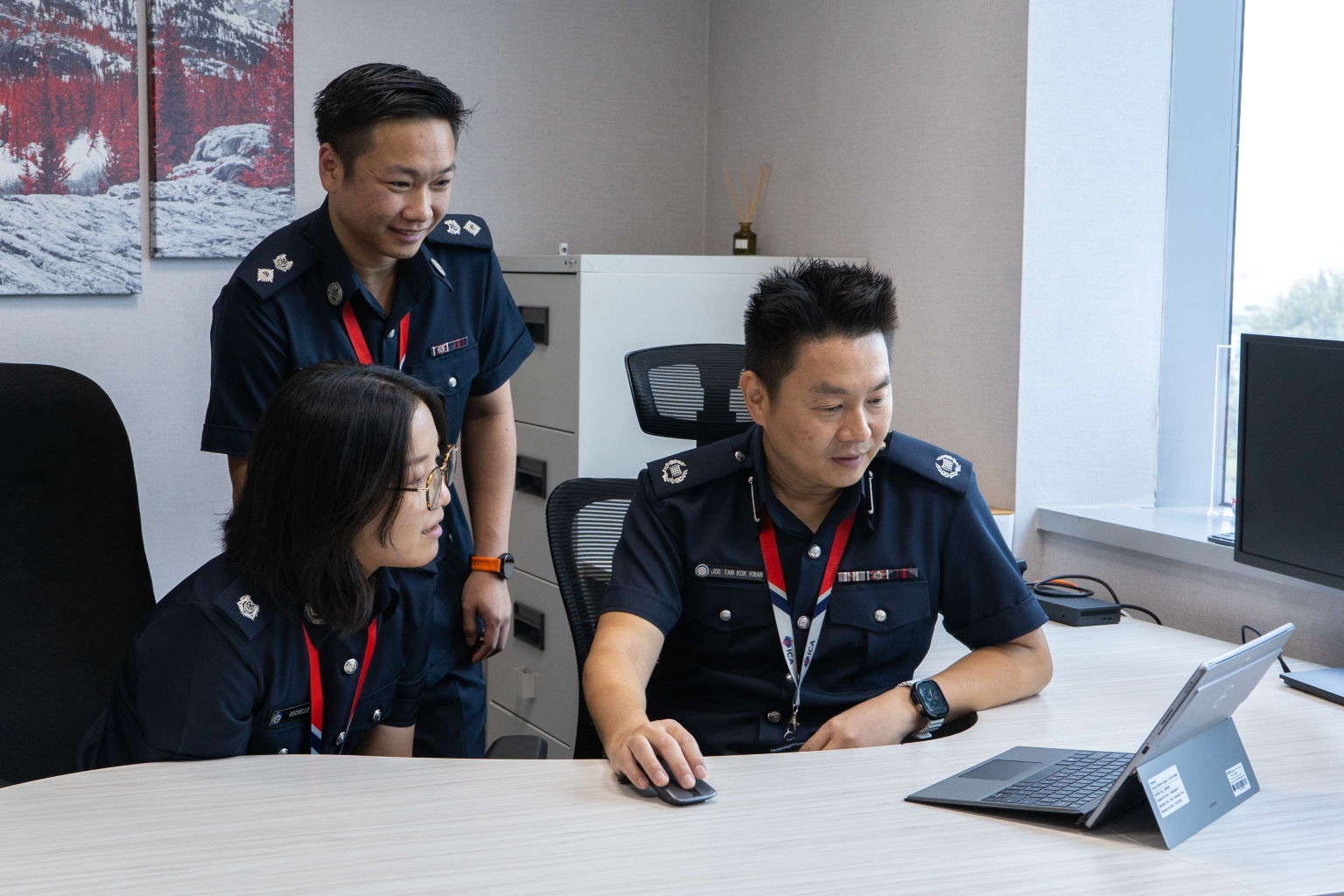
PHOTO: COURTESY OF JOE TAN
One of the projects that I handle is the Johor-Singapore Rapid Transit System (RTS) Link. The RTS Link aims to enhance connectivity and ease the movement of people between Johor Bahru and Singapore.
This cross-border project will allow commuters to travel seamlessly and efficiently. Commuters can look forward to improved accessibility, reduced travel time, and enhanced convenience when travelling between the two countries.
For the RTS Link project to make progress, I have to engage in meetings with stakeholders across ICA and over 20 government agencies, foreign counterparts, private companies, architects, engineers, and the relevant project teams. These meetings involve brainstorming sessions, discussions on design and infrastructure requirements, and addressing any challenges that may arise. This applies to the other mega infrastructure projects that I am handling as well, including Tuas Port and Changi Airport Terminal 5.
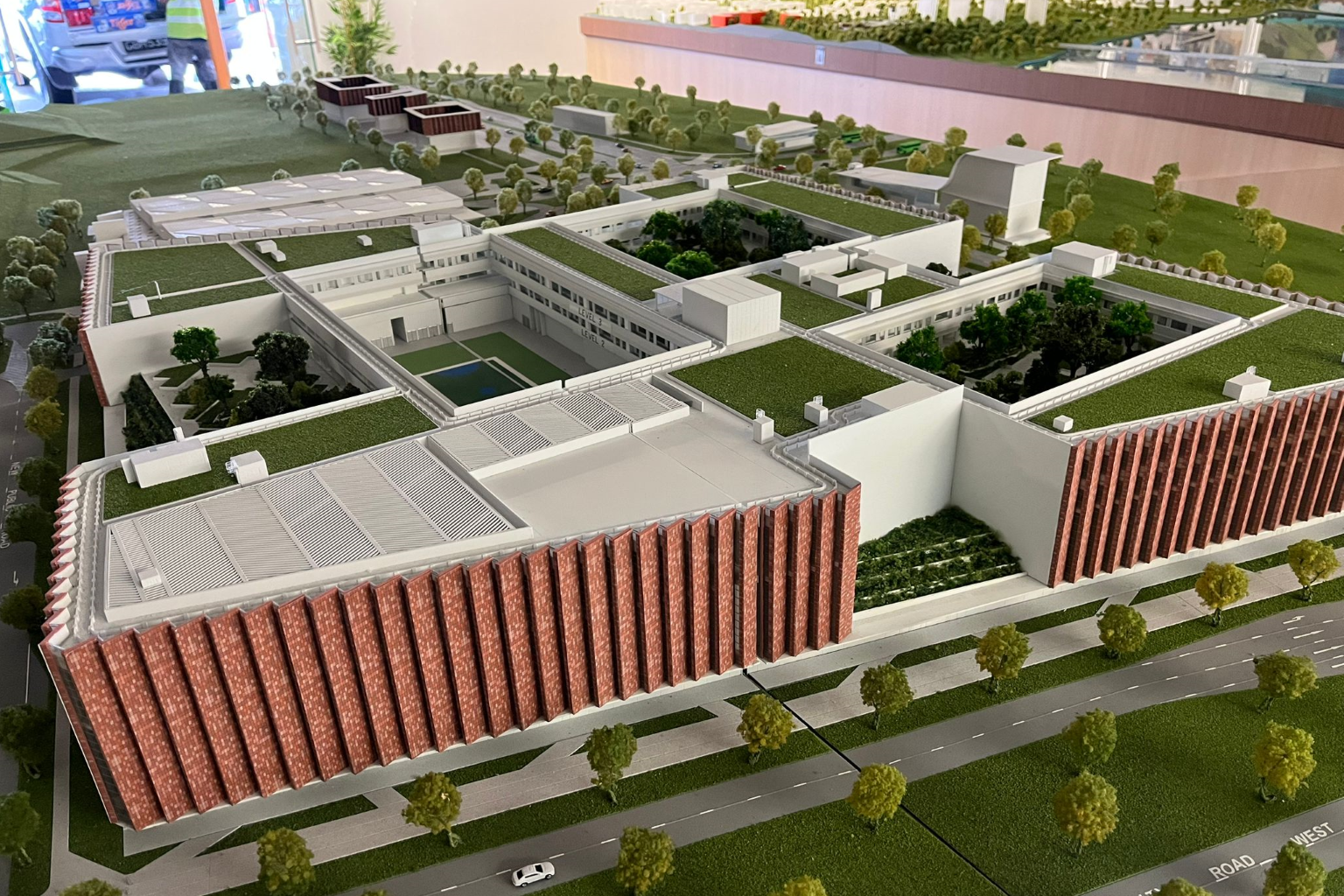
To stay ahead in the field of checkpoint development, my team and I also dedicate time for research and analysis, such as studying industry trends and best practices across both the public and private sectors, local and foreign.
This allows us to identify new opportunities and assess potential risks, particularly for upcoming projects like the Woodlands Redevelopment Project, which aims to alleviate traffic congestion on the causeway and future-proof Woodlands Checkpoint for the projected increase in traffic volume.
Travellers will experience greater automation across all modes of transport. There will also be flexi-lanes that can be toggled to cater to cars or motorcycles. When completed, travel time could be reduced from one hour to 15 minutes. The redeveloped checkpoint's layout and infrastructure will incorporate protective security measures to ensure traveller safety, while also enhancing Singapore's land border.
Every day brings new challenges and opportunities in my role, and I thrive on the dynamic nature of my work.
Q: How has your career progressed since you joined ICA?
My journey at ICA has equipped me with a well-rounded skill set encompassing leadership, project management, operational expertise, technological innovation and strategic thinking. It almost feels like a job change to a completely different field every two years.
I began my journey at ICA in 2004 as a Team Leader (TL) at Woodlands Command, and subsequently Airport Command in 2006. Those initial years allowed me to develop my leadership and team management abilities in an operational environment.
In 2007, I transitioned into managing information and communications technology projects as a senior executive under the technology division. I could leverage my educational background in computer science on projects and initiatives such as the ICA biometric passport system.
The year 2009 brought new challenges as I was posted to the then-Permanent Resident Services Centre (PRSC). There, I handled the processing of applications for permanent residence. I was also double-hatting as a System Owner for the Central Identification and Registration Information System, which is a central record repository for all Singapore residents.
Then in 2015, I became the deputy head and eventually head (strategic information capabilities) of the Information Management Division, leading ICA’s digitisation efforts.
After that, in 2018, I had the opportunity to pursue a full-time master’s degree in Nationalism Studies at the University of Edinburgh under the MHA Postgraduate Scholarship. During my time there, I was exposed to fresh perspectives on how we interpret world events as well as the complexities of international relations. The stint helped to deepen my understanding of global issues.
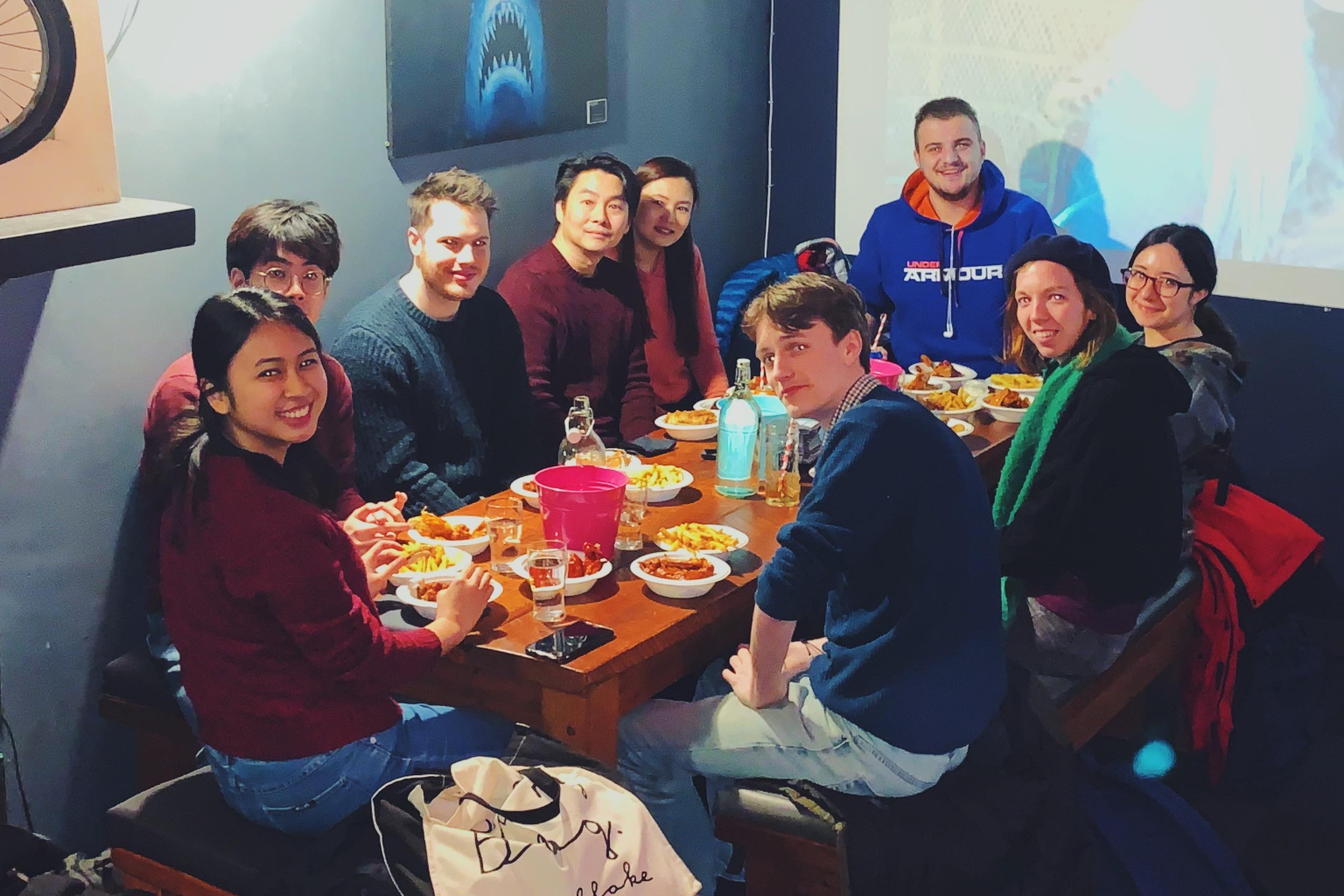
Upon returning in 2019, I was posted to Tuas Checkpoint as Deputy Commander, overseeing ground operations. I had to lead a team of over 1,000 officers from ICA and Auxiliary Police Forces to ensure smooth and secure checkpoint operations.
This posting honed my ability to manage complex operations and was particularly memorable because this was when the Covid-19 pandemic hit – health measures were stepped up at the checkpoints, and we had to ensure that the flow of cargo and essential supplies were not disrupted.
Since June 2022, I have been 1 Deputy Director at ICA’s Operations Division.
Q: What led you to pursue a career in this area?
I have always been drawn to roles that involve making a positive impact on society; that is why I was keen to pursue a career in the area of security.
Joining ICA exposed me to the role of safeguarding Singapore’s borders and my passion for watching over the country's security has been a constant driving force over the past 19 years. Having taken on different roles has allowed me to discover the various facets of border security, beyond checkpoint operations.
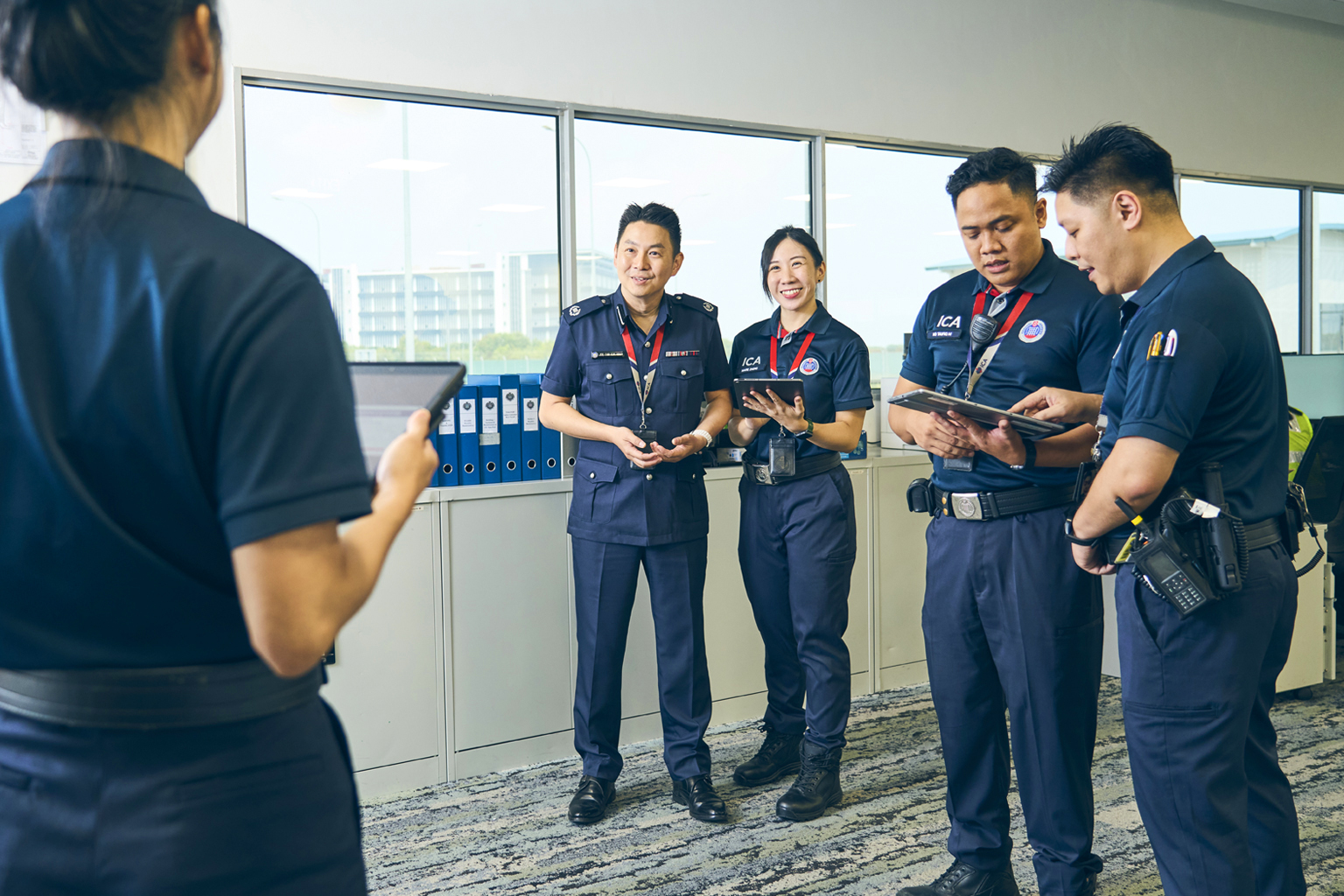
What sets ICA apart from the other agencies is the constant challenge of enhancing border security and finding solutions to facilitate travel and the movement of people and goods – this is what makes my job so interesting and fulfilling.
Q: How does your job allow you to make an impact on society?
By leading the development of checkpoints across air, land, sea and rail, I play a role in shaping the infrastructure and systems that protect our nation, and facilitate the efficient and secured movement of people and goods across the border.
One of the most rewarding aspects for me is knowing that the work my team and I do directly impacts the safety, convenience, and overall experience of individuals passing through these checkpoints.
Q: What advice would you give to someone who is interested in pursuing a career at ICA?
Keep an open mind. The nature of ICA’s work is constantly evolving, with new technologies, methodologies and best practices emerging. Stay open to new ideas, be receptive to feedback and proactively seek opportunities to expand your knowledge and skills.
In ICA, there is no room for monotony. With each new assignment, you will discover exciting opportunities to push your boundaries.


